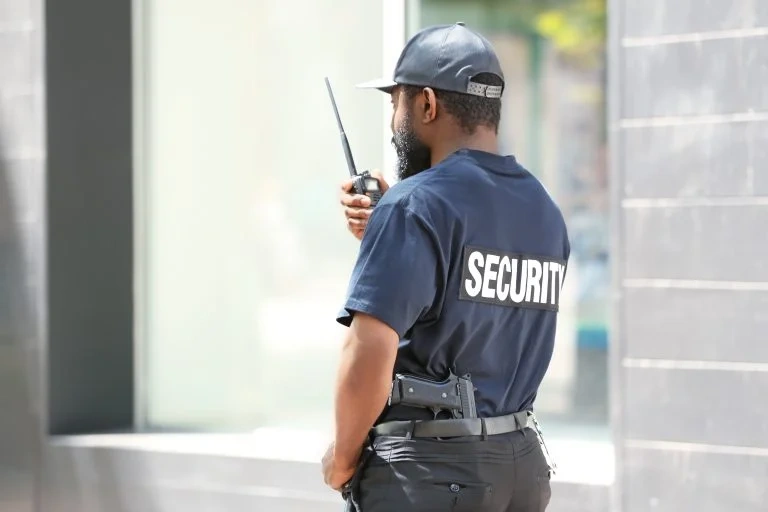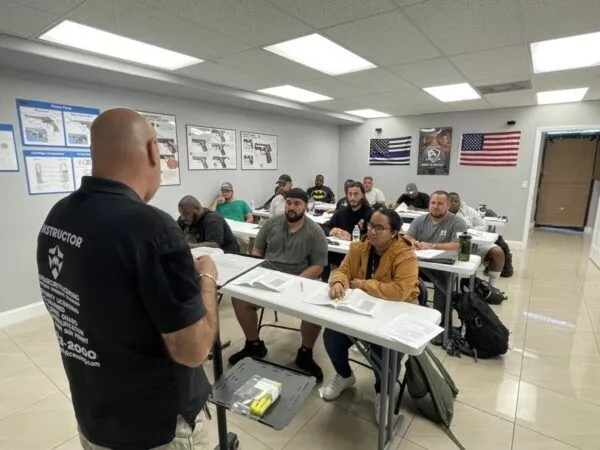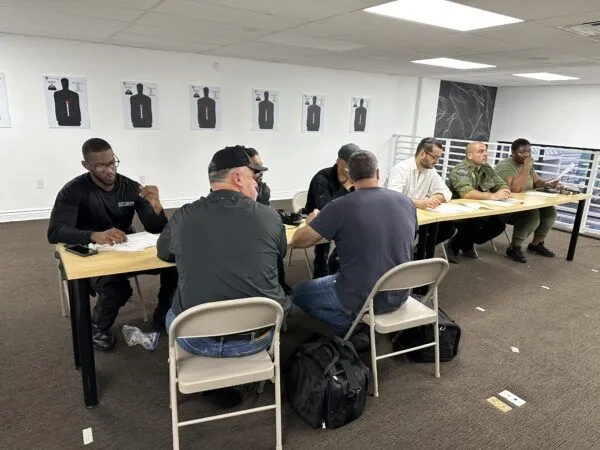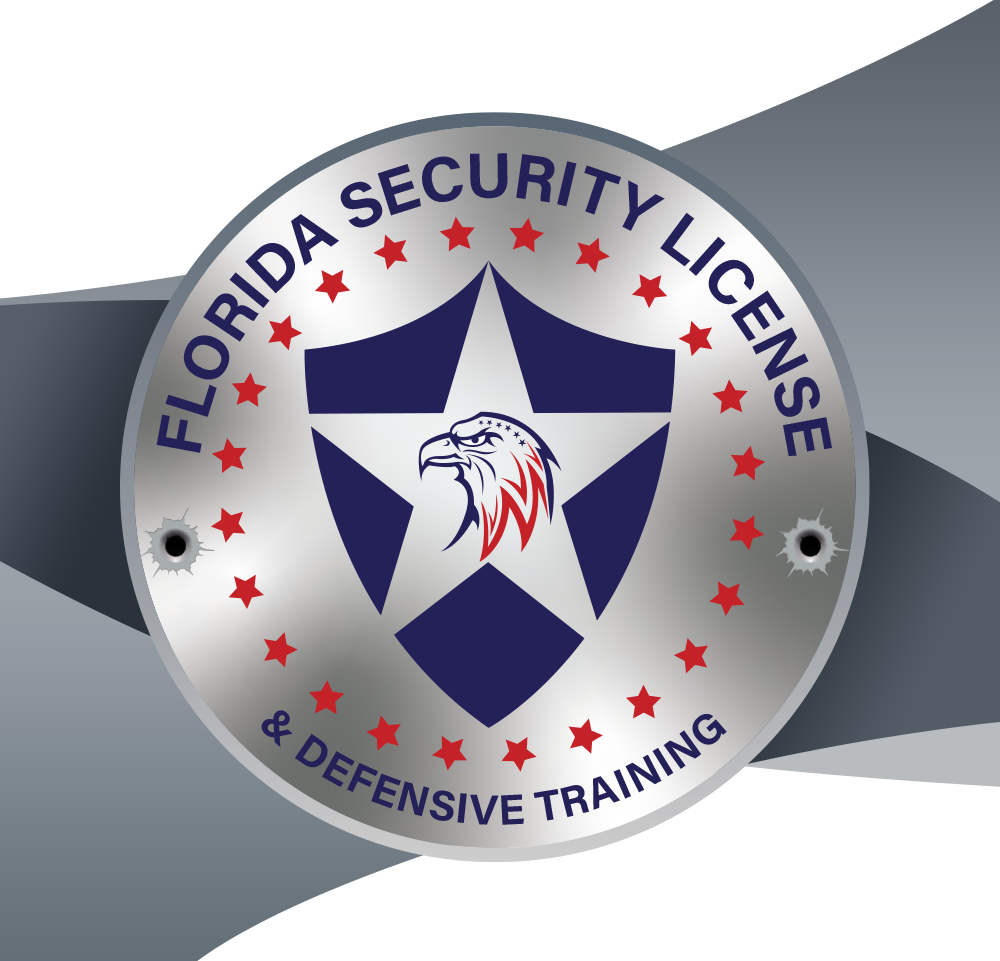Security guards serve as the first line of defense in protecting people, property, and assets, with some roles requiring them to be armed for enhanced security. However, the ability of security specialists to carry a firearm comes with significant responsibility, as strict legal and training requirements dictate what types of firearms security personnel can use and under what circumstances. From corporate security and law enforcement agencies to armored transport and high-risk private security assignments, armed professionals must navigate complex state and federal regulations to ensure lawful compliance and maintain public safety.
Completing a firearms license course is a fundamental step in becoming a certified armed security guard. This extensive training ensures professionals understand firearm safety measures, de-escalation tactics, and legal limitations surrounding firearm use. Beyond certification, security guards must also remain up to date with evolving laws and security license renewal mandates to retain their authorization to carry.
In this guide, we’ll break down the requirements for security companies obtaining proper firearm training, the types of firearms security personnel may be permitted to carry, and key legal considerations. Additionally, we’ll explore how selecting the right firearm can enhance job performance while ensuring compliance with firearms training class regulations and legal aspects.
Understanding Firearm Regulations for Security Guards
Laws governing “can security guards carry guns” vary widely depending on state regulations, employer policies, and the specific but not every security guard’ role. Some states mandate extensive background checks, fingerprinting, and psychological evaluations before granting security officers the right to carry a firearm. Additionally, obtaining a “state-issued security license” and successfully completing a firearms training class are often prerequisites for armed security positions.
In many jurisdictions, law enforcement officers and security personnel must also adhere to strict guidelines regarding where firearms can be carried. “Federal regulations” may prohibit armed security officers from carrying weapons in sensitive locations such as government buildings, schools, and transportation hubs like airports. In these environments, security guards may be limited to non-lethal alternatives to personal firearms such as tasers, batons, or pepper spray, ensuring they can respond to threats without violating firearm restrictions.
To lawfully carry a firearm while on duty, security guards are often required to complete regular security license renewal processes and undergo ongoing training. This ensures they remain proficient in firearm handling, understand the latest legal updates, and maintain physical and mental fitness standards required for their role. Continuous education and compliance with evolving firearm laws help armed guards and security professionals operate within the legal boundaries of the law while effectively protecting the communities they serve.
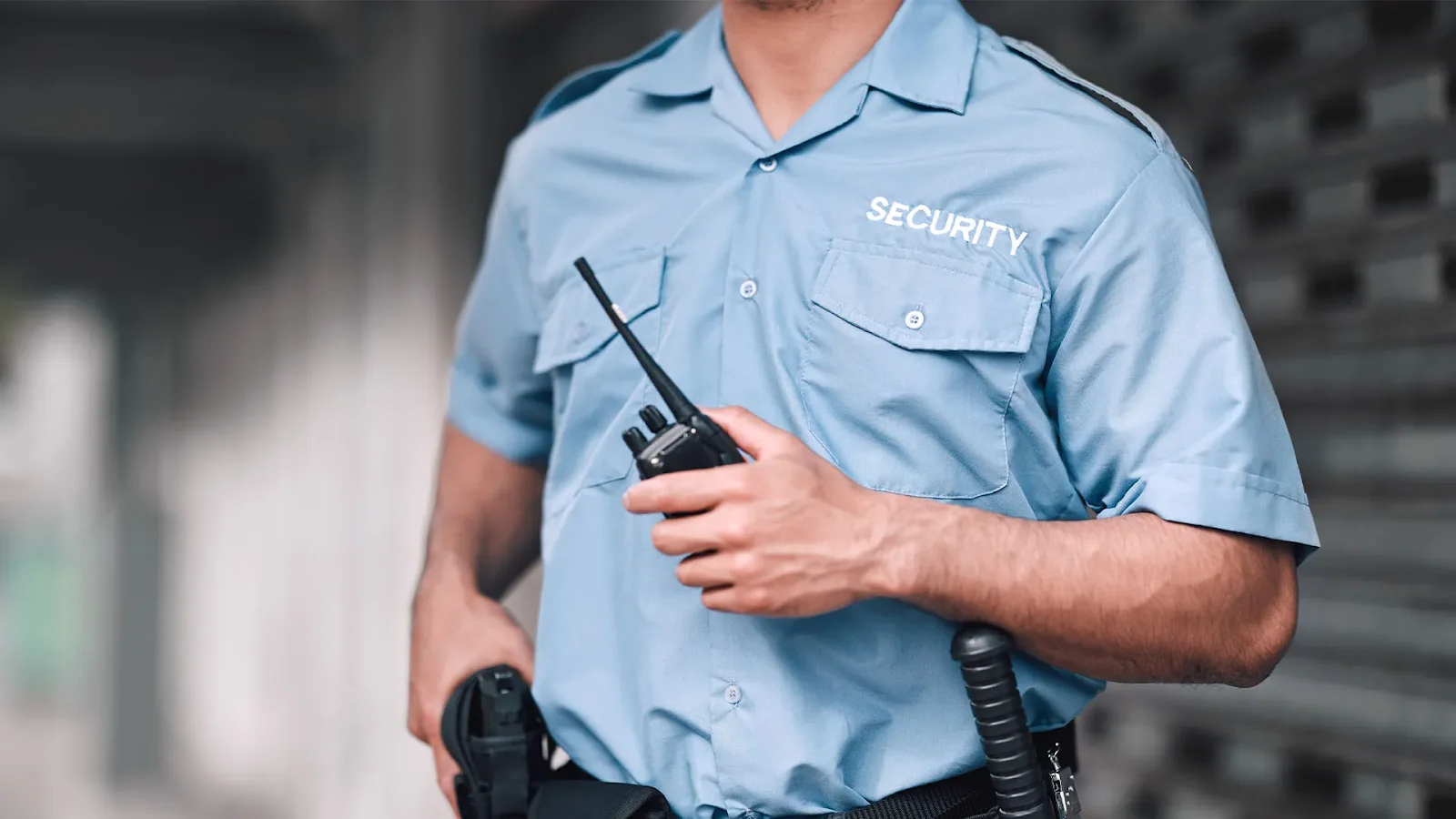
Types of Firearms Security Guards Can Carry
The type of firearm a security guard can carry depends on the employer’s policies, the specific security role, and local laws. The most common firearms issued to armed security personnel include:
- Handguns (Semi-Automatic Pistols & Revolvers): The majority of armed security professionals carry semi-automatic pistols such as Glock, Sig Sauer, or Smith & Wesson models. These firearms offer reliability, high-capacity magazines, and ease of use. Some companies may also issue revolvers, though they are less common due to their lower capacity and slower reload time.
- Shotguns: Security guards working in high-risk areas, such as armored transport services, may be authorized to carry shotguns. These firearms provide increased stopping power but require additional firearms training class certification.
- Rifles (Semi-Automatic Only): In specialized security roles, such as government facility protection or critical infrastructure security, semi-automatic rifles may be permitted. However, strict regulations govern the use of rifles, and security professionals must complete advanced firearms license course training to be authorized to carry one.
Before carrying any firearm, security guards must have rigorous training to ensure they meet both state-mandated licensing requirements and their employer’s security policies.
Legal Requirements for Security Guards Carrying Firearms
To legally carry a firearm while on duty, security guards must comply with various legal requirements, including:
- State Licensing: Many states require a firearms permit in addition to a security guard license. Some states also mandate a separate firearms training class specific to armed security.
- Background Checks: Security professionals must pass extensive background checks to ensure they have no disqualifying criminal history.
- Mandatory Training: Completion of an accredited firearms license course that includes classroom instruction, live-fire training, and de-escalation techniques.
- Security License Renewal: Armed security professionals must renew their license periodically, which may include refresher training and proficiency testing.
Failure to meet any of these requirements can result in disqualification from carrying a firearm while on duty.
Restrictions on Security Guards Carrying Firearms
While armed and unarmed security guards have the authority to carry firearms in designated areas, they are also subject to strict limitations:
- Carrying Off-Duty: In many states, security guards are only allowed to carry a firearm while on duty. Carrying a firearm outside of work without a separate concealed carry permit may be illegal.
- Use of Force Limitations: Security guards must follow strict use-of-force protocols, only drawing their weapon when legally justified.
- Prohibited Locations: Certain areas, such as government buildings, hospitals, and private properties, may restrict armed security presence.
- Employer Policies: Some security firms limit the types of firearms guards can carry or require additional training beyond state mandates.
Understanding and complying with the legal framework of these restrictions is crucial to maintaining a security guard’s professional standing, protecting property, and avoiding legal consequences.
Choosing the Right Firearm for Security Work
Selecting the right firearm for investigative services is a critical decision for security professionals, as it directly impacts their ability to respond effectively in high-risk situations. When choosing a firearm for security services, several factors must be carefully considered to ensure both safety and compliance with state regulations and employer policies.
- Reliability: Security officers need a firearm that functions consistently under all conditions. A weapon prone to jamming or malfunction can compromise response time and put both the officer and the public at risk. Selecting a well-tested model with a strong track record for durability is essential.
- Ease of Handling: Security professionals should choose a firearm that matches their experience level and comfort. Factors like weight, recoil, grip, and ease of operation all play a role in ensuring that an officer can respond quickly and accurately under pressure.
- Magazine Capacity: In high-threat environments, a higher magazine capacity can be advantageous, allowing for multiple rounds without frequent reloading. However, some state laws may impose magazine restrictions, requiring security professionals to remain compliant while ensuring adequate firepower.
- Employer Regulations: Security officers must adhere to their employer’s firearm policies, which may specify the type of firearm permitted for duty use. Some employers require specific models or calibers, while others mandate additional certifications before allowing armed security personnel to carry on the job.
While choosing the right firearm is crucial, proper training, and proficiency are equally important in ensuring effectiveness against security threats. Security personnel should participate in firearms training class programs to build confidence and precision in handling their weapon. Regular practice at a certified range, combined with continued education through online security guard training Florida courses, helps security professionals stay prepared, responsive, and compliant with evolving firearm laws.
Conclusion
For the security industry professionals wondering can armed security guards carry guns, the answer depends on state laws, employer policies, and security role requirements. Armed security guards must complete the appropriate firearms license course, maintain compliance with licensing regulations, and follow strict safety protocols to ensure responsible firearm use.
Whether working in private security, law enforcement, executive protection, and security planning or armored transport, staying informed and up to date on security license renewal and firearms training class requirements is essential for maintaining a legal and professional armed security career.
For more information on firearm regulations and security training courses, visit SecurityLicense.com to find the latest licensing requirements for unarmed security guards to carry, and security guard training programs.

